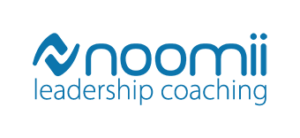Life Coaching Guide: Unlock Your Potential in 2025
Are you ready to break through your current barriers and achieve your biggest goals in 2025? As the new year approaches, more people than ever are seeking meaningful personal and professional transformation.
Life coaching offers a proven pathway to clarify your goals, overcome obstacles, and unlock your full potential. Recent studies show that individuals who invest in this process experience higher self-confidence and measurable improvements in their lives.
This guide will demystify life coaching, explain how it works, outline its key benefits, help you choose the right coach, and provide actionable steps to unlock your potential in the coming year. Ready to discover the strategies that can turn your ambitions into reality? Let’s get started.
What Is Life Coaching?
Life coaching is a collaborative, goal-oriented partnership designed to foster personal and professional growth. Unlike therapy or counseling, which often focus on healing past trauma or treating mental health conditions, life coaching centers on the present and future. The process is built around helping individuals identify their aspirations, overcome obstacles, and create actionable plans to achieve lasting change.
A key distinction is that life coaching does not diagnose or treat psychological disorders. Instead, coaches work with clients on objectives such as career transitions, improving relationships, enhancing wellness, or pursuing personal development. For example, a coach might support someone building confidence for a new job, navigating a major life change, or finding better work-life balance.
The life coaching industry is unregulated, meaning there are no mandatory licenses to practice. However, respected organizations like the International Coaching Federation (ICF) offer credentialing to uphold ethical standards. According to ICF’s 2024 report, there are over 71,000 professional coaches worldwide, with the average North American coach earning $67,800 annually.
Real-world examples show life coaching’s versatility. Clients have used coaching to conquer imposter syndrome, make successful career pivots, or break through limiting beliefs. Virtual coaching has also surged in popularity, making support accessible to clients across the globe.
If you are curious about exploring coaching for your own goals, you can find a life coach near you to start your journey with a qualified professional.

Life Coaching vs. Therapy: Key Differences
Understanding the difference between life coaching and therapy is essential when choosing the right support for your growth. While both help people improve their lives, each serves a unique purpose.
| Aspect | Life Coaching | Therapy |
|---|---|---|
| Focus | Present and future goals, achievement | Mental health, healing, past issues |
| Qualifications | Certifications (not clinical), industry credentials | Licensed, advanced degrees, clinical training |
| Session Goals | Action plans, accountability, skill-building | Emotional healing, diagnosis, treatment |
Therapists are trained to treat anxiety, depression, or trauma, working through deep-seated patterns. In contrast, life coaching focuses on building confidence, setting goals, and creating actionable steps for success.
For example, a coach may help you prepare for job interviews or develop leadership skills, while a therapist helps manage mental health challenges. According to an IFC study, 80% of coaching clients report improved self-confidence.
It’s important to note that life coaching is not a replacement for therapy but can complement it. Many people use both for a holistic approach to well-being. For a deeper comparison, see Life Coaching vs. Therapy: 6 Key Differences.

The Top Benefits of Life Coaching in 2025
Unlocking your potential in 2025 starts with understanding the unique advantages that life coaching brings. With a focus on measurable growth and ongoing support, the benefits extend across personal, professional, and emotional domains.

Personal and Professional Growth
Life coaching helps individuals gain self-confidence and deeper self-awareness, which remains rare. Recent research shows only 10% to 15% of people are truly self-aware. Through targeted sessions, clients uncover their strengths, clarify what drives them, and set meaningful goals.
Clients report greater motivation and a stronger sense of purpose. Over 70% of coaching participants experience improved work performance and stronger relationships. For example, a client struggling with imposter syndrome found consistent breakthroughs through life coaching, leading to new career opportunities and personal fulfillment.
Well-Being and Resilience
Working with a coach often leads to better well-being and higher resilience. A 2024 BetterUp analysis found that 77% of coaching clients see significant improvements in well-being within just four months.
Life coaching encourages adopting a growth mindset, helping clients embrace challenges and learn from setbacks. Techniques for work-life balance and time management are common, empowering professionals to manage stress during transitions. For deeper insights and inspiring client stories, visit the Noomii coaching blog insights.
Accountability and Sustainable Change
One of the greatest strengths of life coaching is its focus on accountability. Coaches provide structure, honest feedback, and a reliable support system, making it easier to follow through on personal goals.
Clients consistently report higher engagement and retention rates when working with a coach. For example, a manager enhanced their leadership skills and improved team communication through regular coaching sessions, resulting in long-term, positive change.
Types of Life Coaching and Finding the Right Fit
The world of life coaching is diverse, offering tailored support for nearly every personal and professional goal. Popular types include personal coaching for self-growth, career coaching for job transitions or advancement, executive coaching for leadership development, and relationship coaching for improving communication and connection. Wellness, transformational, and sales coaching also address specific needs, from building healthy habits to boosting performance.
Each specialization targets unique challenges. For example, a recent graduate may benefit from career life coaching to navigate the job market, while a senior leader might seek executive coaching to elevate team results. The right coach brings relevant experience and, ideally, credentials from organizations like the International Coaching Federation (ICF).
When evaluating coaches, look for a proven track record, testimonials, and a coaching style that aligns with your values. Chemistry is essential, so take advantage of free introductory sessions many coaches offer. Consider both virtual and in-person formats. Virtual coaching increases accessibility and flexibility for clients worldwide.
Pricing varies widely, with entry-level sessions averaging $25 per hour and experienced coaches charging $71 or more, according to Payscale 2024. To clarify which type of life coaching best fits your needs, consider using a Wheel of Life self-assessment before starting your search.

Steps to Unlock Your Potential With Life Coaching in 2025
Unlocking your potential in 2025 begins with a structured approach. Life coaching provides the framework and expert support to help you move from intention to achievement. Here are five actionable steps to maximize your results.
Step 1: Clarify Your Goals and Motivation
Start by reflecting on your personal and professional aspirations for 2025. Identify areas where you feel blocked or ready for growth. For example, you might set a goal to switch careers or achieve better work-life balance. This clarity sets a strong foundation for your life coaching journey.
Step 2: Research and Select the Right Coach
Use online directories, referrals, and reviews to create a shortlist of potential coaches. Schedule introductory calls to gauge compatibility, coaching style, and relevant credentials. Choosing a coach with a proven record in your area of focus increases the impact of life coaching.
Step 3: Define Your Action Plan
Collaborate with your coach to turn your ambitions into clear, measurable goals. Break objectives into actionable steps, each with a timeline. For instance, you might design a 90-day plan to earn a leadership promotion or achieve a wellness milestone. This step transforms vision into reality.
Step 4: Commit to the Process and Track Progress
Consistency is key. Attend sessions regularly and complete agreed-upon actions. Use accountability tools and your coach’s feedback to stay on track. If obstacles arise, adjust your strategies.
Step 5: Measure Outcomes and Celebrate Wins
Review your progress with your coach using key milestones or personal performance indicators. Celebrate each achievement, no matter the size, to build lasting motivation. Whether you complete a successful career pivot or improve your well-being, recognizing wins keeps momentum high.
Overcoming Common Challenges and Misconceptions
Despite its popularity, life coaching is often misunderstood. Some believe life coaching is only for people with problems or that it lacks effectiveness due to industry regulation. In reality, life coaching supports anyone seeking growth, clarity, or improved performance, not just those in crisis.
A key misconception is that coaches provide therapy. In fact, ethical coaches never diagnose or treat mental health issues. Instead, they create structured support for achieving goals and building mental fitness. Coaches help clients move from “languishing” to flourishing, as highlighted by recent data showing 55% of people are currently languishing.
Common challenges include finding the right coach, affording ongoing sessions, and staying motivated throughout the journey. To overcome these, try free introductory sessions, set clear expectations, and seek accountability tools.
Consider the story of a skeptical client who, after committing to life coaching, saw measurable improvements in self-confidence and work-life balance. For additional guidance and accountability strategies, explore Accountability Now, a resource trusted by professionals.
Life coaching is a proactive investment in your well-being and potential, offering benefits for anyone ready to make lasting change.




Leave a Reply
Want to join the discussion?Feel free to contribute!